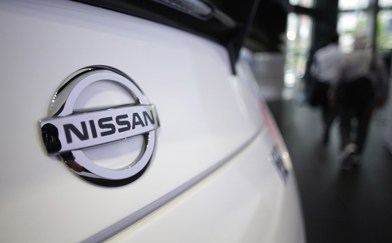The Motor Industry Association (MIA) - the organisation that represents New Zealand's new-vehicle distributors - has withdrawn support for the Government's Clean Car Standard, following what it says are "nasty surprises" and an "appalling lack of understanding" in the introduction of the Land Transport (Clean Vehicle) Amendment Bill into the House.
In an official statement, the MIA says it wanted to support "well thought out and constructive policies that will lead to an increased rate in the reduction of CO2 emissions from the light vehicle fleet", but states that the latest developments - which include the ability for regulators to specify a proportion of zero-emissions vehicles to be sold by NZ brands - will be impossible for the industry to meet and place high costs on consumers.
It also says the NZ Government is out of step with worldwide policy and has ignored carefully considered advice from the local industry.
"The Bill as tabled in Parliament deviates from standards implemented in other countries and is poorly designed. The rate of reduction (emission targets) is so steep that no current distributors apart from those solely supplying battery electric vehicles [pure-electric cars], can reach them in the time span required under the Bill.
"The targets are particularly severe on light commercial vehicles where there are few options for alternative low emissions vehicles this side of 2030.
"The 2026/27 targets are a nasty surprise. Under the targets in the Bill, there is a 40 per cent reduction in emissions required from now until the end of 2025 and then a 43 per cent reduction required over the next two years to the end of 2027.
"No jurisdiction anywhere in the world requires this rate of reduction and which will see us get ahead of what Europe requires for that same time-period.
There is no obvious rationale and it seems it is a revenue gathering exercise for New Zealand to have targets that are tougher than other jurisdictions like Europe. New Zealand new vehicle importers parent companies are already making their production plan out to 2030 and these will be based on what Europe, Asia and Australia need, not what our government wants. "
The MIA claims that the new rules will require the price of new vehicles to increase by 15-20 per cent and because the targets are weighted, even small, economical vehicles will be hit hard.
It also calls the Cabinet decision to require all vehicles, whether new or used, manufactured from January 2022 to be tested using the Worldwide Harmonised Light Vehicle Test Procedure (WLTP) protocol (or the American EPA test if that is not available) "alarming".
The WLTP protocol is only required for the Euro 6(d) vehicle exhaust emissions standard, which Australia and New Zealand have not adopted.
"Further, the Cabinet paper incorrectly stated our source market for vehicles is Europe and Japan, who already require WLTP testing. This was based on incorrect advice from officials who, at the time it was written, did not understand that NZ’s major source of vehicles are those made for Australia and complied to their standards, which currently do not require WLTP.
"As drafted, the Bill will impose crippling penalties on the vast majority of current new vehicle distributors operating in New Zealand and ultimately onto consumers."
The Clean Car Standard is part of the Government's plan to decarbonise transport emissions in the coming years. It's related to the Clean Car Discount introduced this year and the proposed "feebate" scheme for 2022, but looks further ahead, one of the milestones being a weighted 105g goal for 2026 and increasing penalties for distributors that cannot comply. The current average for the NZ new-vehicle industry is 171g/km.



